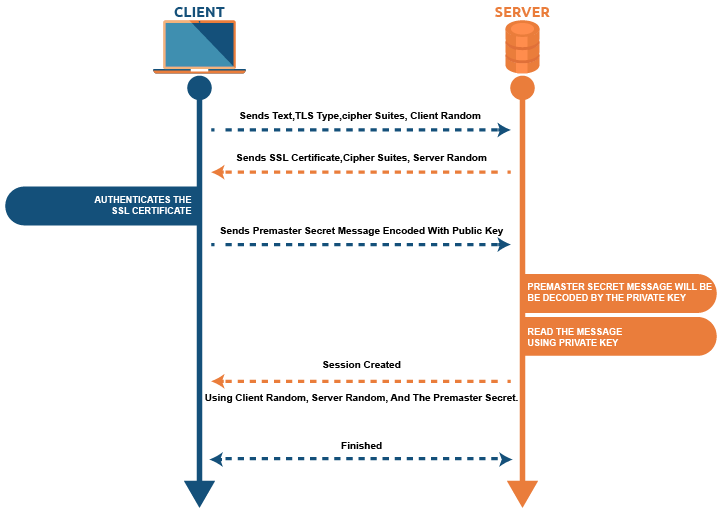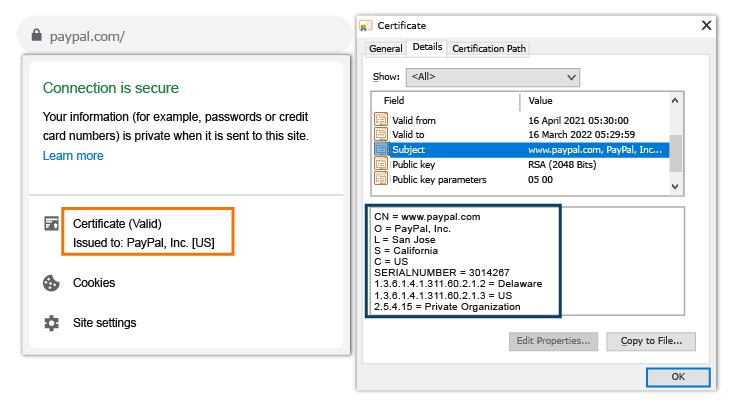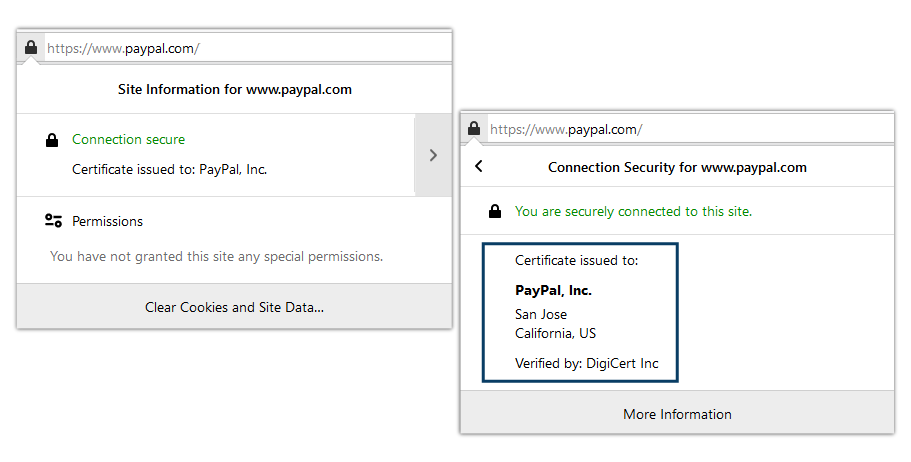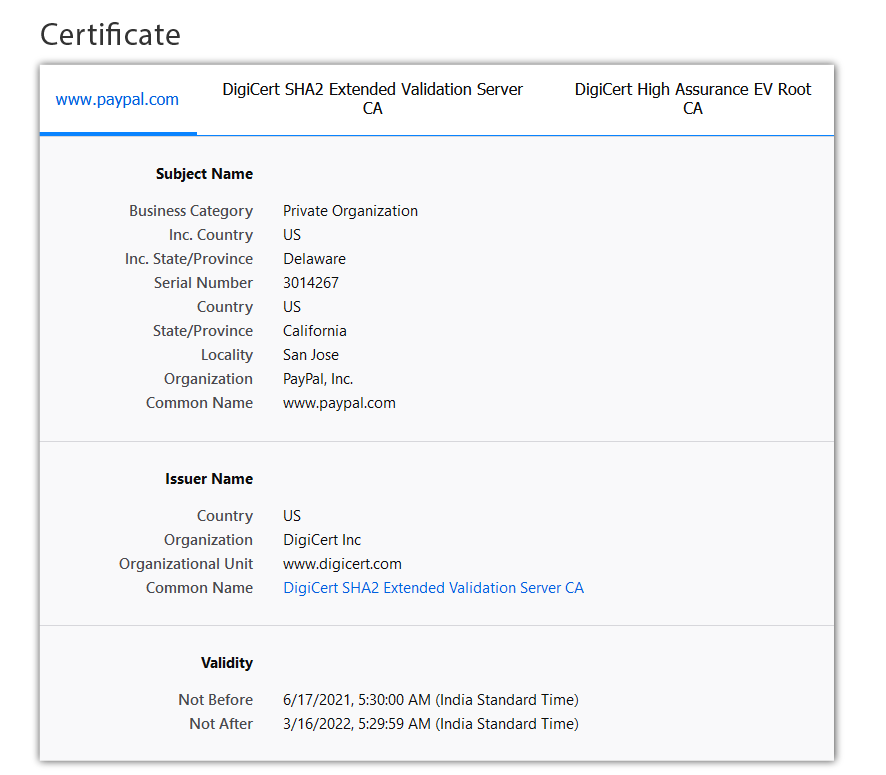Website Security Certificate or SSL certificate ensures Identity assurance, online trust, and robust security, which are few inevitable aspects of any website in today’s era.
A Security Certificate assures users that they are visiting a real website and not a fake one. Cybercrime is now a big issue in the online world and identity either be it a company or an individual is at high risk.
A 2020 research report says that 47% of companies across the globe have experienced different online frauds, which comes to a $42B loss in the last 24 months.
PWC report says that the affected industries include consumer markets, Energy, Utilities and resource, financial services, Government and public sector, Health industry, Industrial products, and manufacturing, and lastly Technology Media and telecommunication.
So, identity assurance is a big deal in the rising cyber threat landscape. Cybercriminals always try to create a fake identity and make users victims by sniffing and capturing their information over the web.
What is a Website Security Certificate?
A website Security Certificate is a digital approval from a trusted third-party certificate authority. The certificate is a kind of digital file that contains verified company and domain details. A security certificate is also called an HTTPS certificate.
It turns HTTP into HTTPS with an extra “S” at the end of HTTP. It assures that the certificate provides an encrypted connection between the server and the browser.
The secure HTTPS site shows a grey padlock before the starting of a domain name, which shows that the site is secured with modern encryption standards. The main object of an SSL certificate is to bring strong encryption, verified business identity, and secured web transactions on the website platform.
Customers easily share their sensitive information like login details, credit card, debit card details, passwords, addresses with a secured HTTPS website hoping that a site holder has taken all necessary steps to secure their information. They will be visiting the site again in near future, which makes them happy, and business grows.
Why Website Security Certificate is so Important?
Website Security certificate is an essential part of any website that verifies the server’s identity and ensures that the user is connecting to an official server, which is attached to a verified domain name.
Moreover, data spying activities can be reduced at a large scale and customers can fearlessly visit the website without worrying about data loss.
From a business point of view, a company can grow in terms of sales number and profits speedily. Due to robust encryption, every bit of information remains secured and the communication between the client to the server gets protection. HTTPS websites are likely to get ranking in search engines and the browser community also recommends having a secured website against HTTP sites. A secured website increases the confidence of customers.
Benefits of a Website Security Certificate
Ensures Authentication and Trust.
A renowned third-party CA provides the certificate only after proper authentication. If a business has installed it, there will be a padlock on the address bar. When visitors visit the site, they can see the padlock and ascertain that the site has been authenticated by a CA and is safe. The information that the visitor shares with the website is also secure.
Most CAs also provide a Trust Seal that you place at a prominent portion on the site. It can add to the trust factor for your website. If you are an e-commerce website, the seal can assure the visitor that they can undertake financial transactions through the site and their information will be safe.
Secure Information through Encryption
The website security certificate uses the latest encryption algorithms that prevent anyone from intercepting the messages and using them for malicious ends. HTTPS websites are known to be safe, and you can also carry out financial transactions. The encryption of the data exchange ensures that no hacker can access the information and make unauthorized changes or get hold of the customer data.
Improves Brand Equity.
More people worry about website security than ever before. Web browsers like Google Chrome and Mozilla Firefox place great importance on internet security. These browsers are marking non-HTTPS sites as “Not Secure”. Visitors are aware that the warnings are shown only when they try to visit insecure websites. When they see this warning, they readily abandon the site and move to the competition.
The use of these certificates assures the visitors that they are visiting a safe website and can share their personal information with the site. The visitors will readily log in to your website once they see the padlock on the address bar. Once they sign in, the chances of them returning to your website increases manifold. It allows to increase customer loyalty and thereby increase conversions.
Improves Search Rankings.
Search engines like Google have been vigilant against unsafe websites on the internet. Google has announced that they include HTTPS (HTTP + SSL = HTTPS) as a lightweight parameter during a keyword search. Thus, if all parameters are the same, Google will ensure that the HTTPS site is ranked higher.
Moreover, when a visitor sees the padlock, they are assured that the site is safe. The dwell time of these visitors is more. As a result, footfalls are increased, and it improves the SEO factor for the business too.
How does Website Security Certificate Work?
Website security certificate follows a handshake process that occurs between the server and the client. The process involves an exchange of cipher suites, cryptographic parameters, authentication of both parties, and key exchanges as well as creating symmetric keys.
Once the process is done, the user can transmit their data over a secured connection. A successful handshake prevents man-in-the-middle attack and offers secure and smooth online communication. The SSL handshake process includes steps like:
- Client Hello: Client Hello includes the information that should be communicated between the client and the server. The information relates to SSL version number, cipher suite, cipher settings, and session-wise data.
- Server Hello: This part also relates to the information that the server requires to converse with the client applying SSL. The information should be the SSL version number, cipher suite, cipher settings, and session-wise data.
- Authentication and Pre-Master Secret: Here, the client validates the server certificate and creates a pre-master secret depending upon the cipher for the session. The client uses the server’s public key and encrypts the pre-master secret and sends it to the server.
- Decryption and Master Secret: Upon receiving the pre-master secret, the server decrypts it with its private key. After that, both the client and server agreed upon the selected cipher and generate the master secret.
- Encryption with Session Key: Finally, the client and the server communicate, and exchanges messages, and ensures that the future messages will have modern encryption.
How to Use a Website Security Certificate to Check an Organization’s Information?
A secure HTTPS certificate indeed encrypts the information between the server and the client. A user can check validated organization’s information in a security certificate. Below is an explanation of how to check an organization’s details in a website security certificate.
In Chrome
A user can click on a padlock in the browser and there will be a dialog box where “Certificate (Valid)” is written. Then you can click on it to know further details of a certificate. It will look like three tabs box. A user can click on the “Details” tab and go to the “Subject” field to check the verified organization’s identity.
In Firefox
A user can click on a padlock and there will be a dialog box where a text like “connection secure” with an arrow is written. Once you click on an arrow, it will slide to a box where a user needs to click on “More Information”.
Now, a new box will be appeared and click on the “View Certificate” button. Once a user clicks on it, a new browser tab will be opened showing certificate information as seen below image.
Conclusion
If a website wants to secure customers’ information, then a website security certificate is required. A URL that begins with HTTPS instills trust in customers’ minds. By encrypting the website, you are protecting yourself and your valuable customers and averts cyber attackers to spy on traveling information. It is prudent to check website security certificate details before browsing further on the website.
Related Articles:
- What Types of SSL Certificates are Good for Website Security?
- Why You Should Enable HTTPS on Your Website?
- Is Your Website Secured for Google? HTTP Marked “Not Secure”
- Benefits of Securing Website With SSL Certificate
- What Is a CA Bundle in SSL? – A Step-by-Step Guide to Create It
- What is the Sectigo RSA Domain Validation Secure Server CA?





